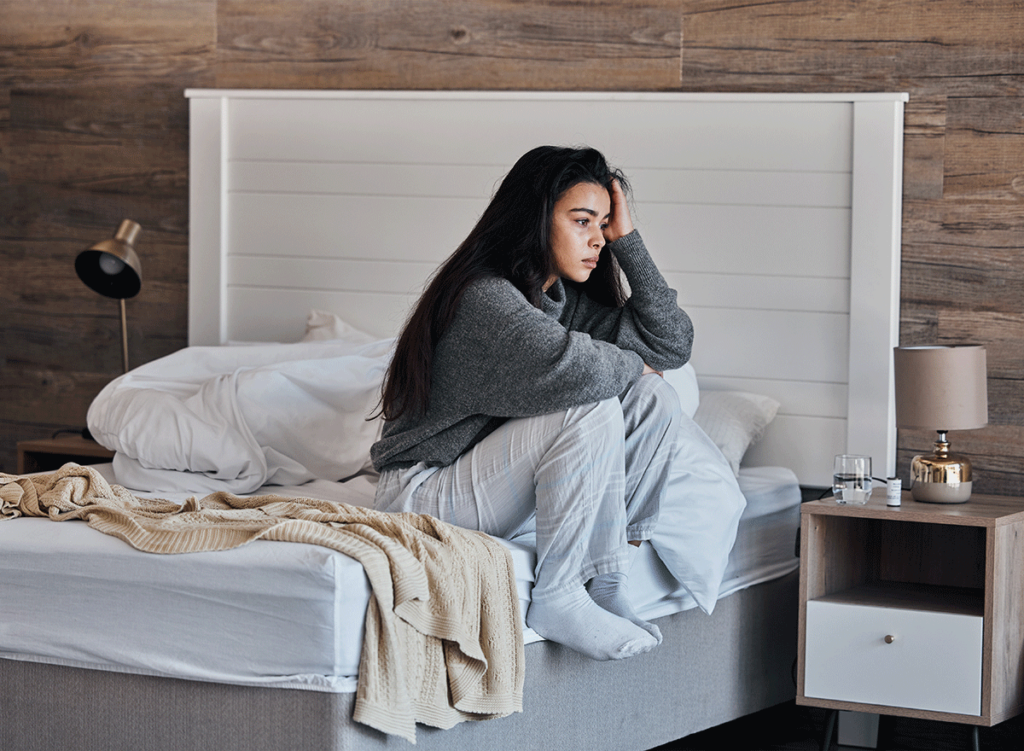Sleep is essential for our overall health and well-being. Unsurprisingly, adolescents need more sleep than adults due to the physiological demands of growth and development. However, with the increasing demand for academic and extracurricular activities in high school, teenagers are more prone to sleep deprivation, which can negatively impact their mental health and cognition. Exploring the effects of sleep deprivation on the teenage brain and ways to prevent it can help you manage its adverse effects.
If sleep problems persist, it’s essential to seek help from a mental health professional. The team at Imagine Spokane is dedicated to improving the well-being of teenagers through personalized care and a range of mental health and behavioral health services. Contact us today at 888.384.3143 to learn more about teen sleep deprivation and how adolescent depression treatment can help.
Effects of Sleep Deprivation on the Teenage Brain
Sleep is crucial for consolidating memories and restoring energy in the brain. During sleep, the brain eliminates harmful waste products and recharges neurotransmitters essential for cognitive functions. Adolescents require at least eight to 10 hours of sleep per night, but studies show that only a minority of high school students meet this recommended amount. Sleep deprivation can harm the teenage brain, leading to poor academic performance, mood swings, and depression.
How Sleep Affects Mental Health
Sleep and mental health are closely linked. Sleep deprivation can cause irritability, anxiety, and depression symptoms in teenagers. Chronic sleep deprivation can increase the risk of developing mental health disorders like bipolar disorder, schizophrenia, and depression later in life.
Sleep also plays a significant role in regulating the body’s stress response system. Lack of sleep can lead to heightened stress levels, affecting the ability of the brain to regulate emotions and decision-making. A healthy sleep routine is essential for maintaining positive mental health.
Symptoms of Sleep Deprivation
The signs of sleep deprivation can vary from person to person. However, the most common symptoms of sleep deprivation among teens include:
- Excessive daytime sleepiness
- Difficulty concentrating
- Impaired decision-making ability
- Mood swings
- Irritability
Sleep deprivation may also cause anxiety and depression symptoms in teenagers.
How to Prevent Sleep Deprivation in High School Students
Preventive measures can help teenagers maintain healthy sleep patterns. Here are some tips on how to prevent sleep deprovation in high school students:
- Establish a sleep routine that is consistent even on weekends.
- Avoid electronic devices at least one hour before bedtime.
- Avoid caffeine before bedtime.
- Maintain a healthy diet and exercise regularly.
Additionally, limiting daytime naps to 20-30 minutes can promote better sleep at night.
Start Adolescent Depression Treatment Today at Imagine Spokane
Imagine Spokane offers a unique mental health treatment program for 12-17-year-olds. We provide evidence-based treatment programs for adolescents struggling with mental health disorders. Our programs include partial hospitalization (PHP) and intensive outpatient (IOP) care, trauma-informed care, medication management, and educational advocacy.
At Imagine Spokane, we offer various therapeutic interventions such as individual, group, family, cognitive-behavioral (CBT), dialectical-behavioral (DBT), and trauma therapy. Our programs are designed to address the specific needs of each of our patients and promote long-term recovery.
We understand the adverse effects of sleep deprivation on the teenage brain and offer a comprehensive treatment plan to address this issue. Our safe and supportive environment for teenagers can help them explore emotions, learn healthy coping mechanisms, and achieve mental health goals.
Sleep deprivation can negatively impact teenagers’ mental and cognitive abilities. Therefore, addressing this issue and promoting healthy sleep habits among adolescents is crucial. At Imagine Spokane, we offer a holistic approach to mental health treatment to ensure our patients achieve their best mental and emotional well-being. Contact us today at 888.384.3143 or online, and let us help you or your loved one embark on the journey to recovery.

